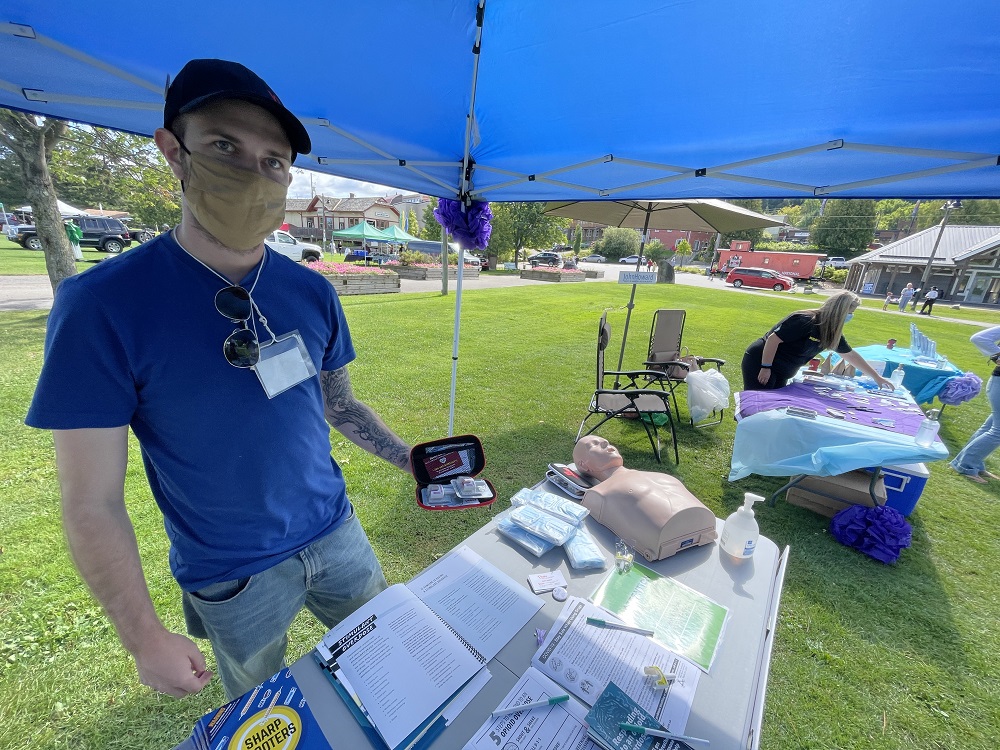Following in the footsteps of several other health care and law enforcement agencies across the country, the Haliburton, Kawartha, Pine Ridge (HKPR) district health unit has supported a new campaign that aims to decriminalize the personal possession of illicit drugs.
During a virtual meeting Oct. 21, board officials were told the local unit was at an impasse, with statistics surrounding opioidrelated drug overdoses spiking to record highs since the onset of COVID-19.
Between April 2020 and March 2021, there were 41 opioid-related deaths in HKPR – up from 21 the year before.
While recognized as a “bold” strategy by Catherine MacDonald, HKPR substances and harm reduction coordinator, she said the move to decriminalize drugs such as cocaine, methamphetamine, heroin and ecstasy would assist the health unit in its attempts to manage an ever-escalating crisis.
“We need to explore innovative health and equity-focused strategies to address this opioid crisis,” MacDonald said.
Nick Seguin, a detective with the Kawartha Lakes Police Services, said that by decriminalizing personal possession of illegal substances, hundreds of people locally would be diverted away from the criminal justice system towards a variety of health care and social services supports.
“By diverting people towards addiction programs, counselling, and harm reduction services we feel that’s the best way to deal with the problem,” he said. “Research shows that laws that criminalize people simply for using and possessing drugs have created serious health and social harms. From a mental health standpoint alone, it is very hard for people to recover from the criminalization aspect of their drug use.
“This is one way for us, potentially, to stop the cycle. If we can get people into programs, we’d be able to, hopefully, reduce crime, reduce calls for service from first responders and, ultimately, bring safer streets to our communities,” Seguin added.
This is a different situation to the one surrounding marijuana, which was legalized in Canada in 2018 and is now sold in stores across the country. These illicit drugs would not be available at retail establishments.
Seguin said other countries that have adopted less punitive policies have not experienced any significant increase in drug use, or drug-related crimes. The movement has been supported by the Canadian Association of Chiefs of Police.
MacDonald said other health agencies, such as Toronto Public Health, have endorsed the campaign, while 42 municipalities in Ontario have supported the ‘Moms Stop the Harm’ resolution, which declares the opioid crisis a national public health emergency and calls for a comprehensive list of supports and reforms, including the decriminalization of illicit drugs for personal use. Organizations such as the Canadian Public Health Association, Canadian Mental Health Association and the World Health Association have also called for new approaches to tackling the overdose crisis, ranging from decriminalization of illegal substances to legal regulation.
Federal health minister, Patty Hadju, has stopped short of endorsing the campaign. Haliburton-Kawartha Lakes-Brock MP Jamie Schmale isn’t a fan, either.
“There aren’t many jurisdictions in the world that have done this kind of thing, if any. I hope Canada is not the first to try this,” Schmale said. “I haven’t heard any conversations of this happening (in Ottawa). I don’t think the atmosphere is out there from Canadians to move forward with this,” he said.
Board chair, Doug Elmslie, is worried it would place an additional burden on law enforcement, and basically force police officers to also act as social service workers.
But Seguin said while decriminalization would put more stress on police, “The simple answer is that we already are social service workers. The majority of the time, our frontline officers are dealing with folks that are at their worst, and we, first and foremost, try to help them out with their addictions, or their problems.”
The HKPR board unanimously endorsed MacDonald’s recommendation.
“We will use this [motion] as a key strategy to help address the opioid crisis and save lives,” she said.





